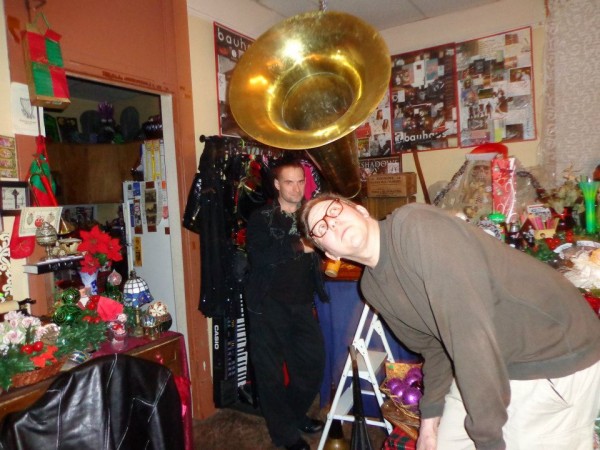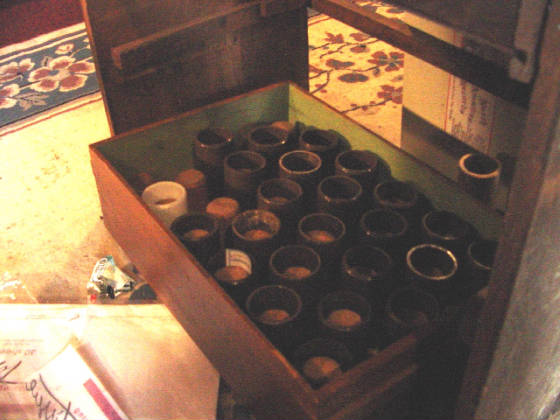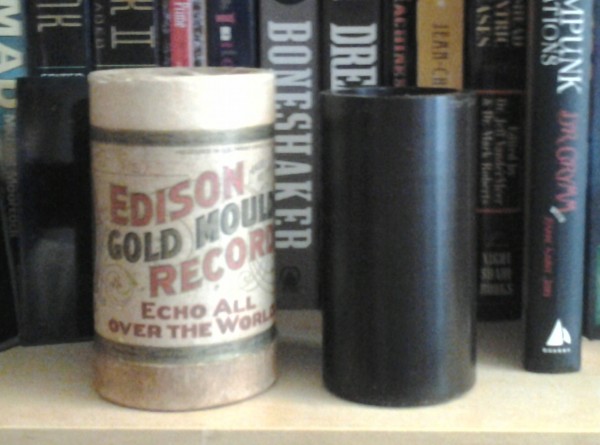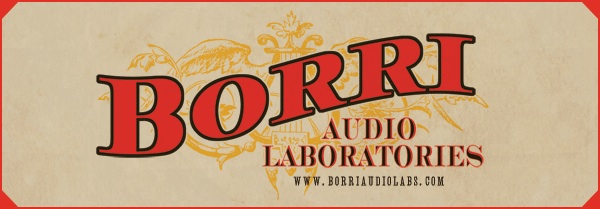Princeton, IL, is a two hour drive from Chicago. Down the street from the antique shops, upstairs from the dance studio and down the cramped hallway, you can find Borri Audio Laboratories. It’s the home of Shawn Borri, who recreates Edison cylinder recordings.
 Liz and I arrived to find Shawn working on blank cylinders. The rich, brown, crayon-smelling formula was heating on the stove. We had to pass through the living room. Edison motion pictures were on the TV. There were two cylinder players: one table top model and another with a built in stand. The latter was attached to a six foot, brass amplification horn suspended from the ceiling on a chain. There were two disc players. One was a superior sounding, 80 rpm Edison model. Its record sleeves sternly and repeatedly warned that the listener should not attempt to play them on anything other than Edison equipment. A vintage RCA microphone was plugged into a reel-to-reel that Borri converted from its original purpose, to record brain waves.
Liz and I arrived to find Shawn working on blank cylinders. The rich, brown, crayon-smelling formula was heating on the stove. We had to pass through the living room. Edison motion pictures were on the TV. There were two cylinder players: one table top model and another with a built in stand. The latter was attached to a six foot, brass amplification horn suspended from the ceiling on a chain. There were two disc players. One was a superior sounding, 80 rpm Edison model. Its record sleeves sternly and repeatedly warned that the listener should not attempt to play them on anything other than Edison equipment. A vintage RCA microphone was plugged into a reel-to-reel that Borri converted from its original purpose, to record brain waves.
Borri dripped oil on rods in the custom molds, then poured in the cylinder wax. The oil provided lubrication so the cylinders could be removed without force or cracking. While his roommate, Christina Death, showed me her Rozz Williams reliquaries, I heard a familiar sound. It was the droning of me on the thermin. Borri was copying The White City Rippers version of “Hello Ma Baby” to an Edison cylinder! Hearing him play it back through the six foot horn was amazing.

The audio fidelity of these machines is striking. I listen to a lot of old-timey music, which tends to be captured digitally. Essentially, the cylinders or discs are played, amplified, recorded digitally and played back. Without trying to sound like too much of an audiophile, there is a lot lost in the translation. You wind up listening to recordings of recordings. Hearing century-old recordings on their intended media brings out their fullness; digitally, it comes across as a block of sound. On the antique equipment, the voices and instruments become distinct. One record featured an incredibly crisp hi-hat cymbal. Having grown up with an antique record player and my great-grandparents’ 78s, I was blown away by how full these records could sound.
Now I have been captured on a solitary wax cylinder with no way to play it at home. It looks like another trip to Princeton is needed if I want to hear it. Care to join me?



There are no voices yet... Post-script us a message below, won't you?